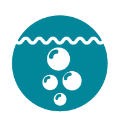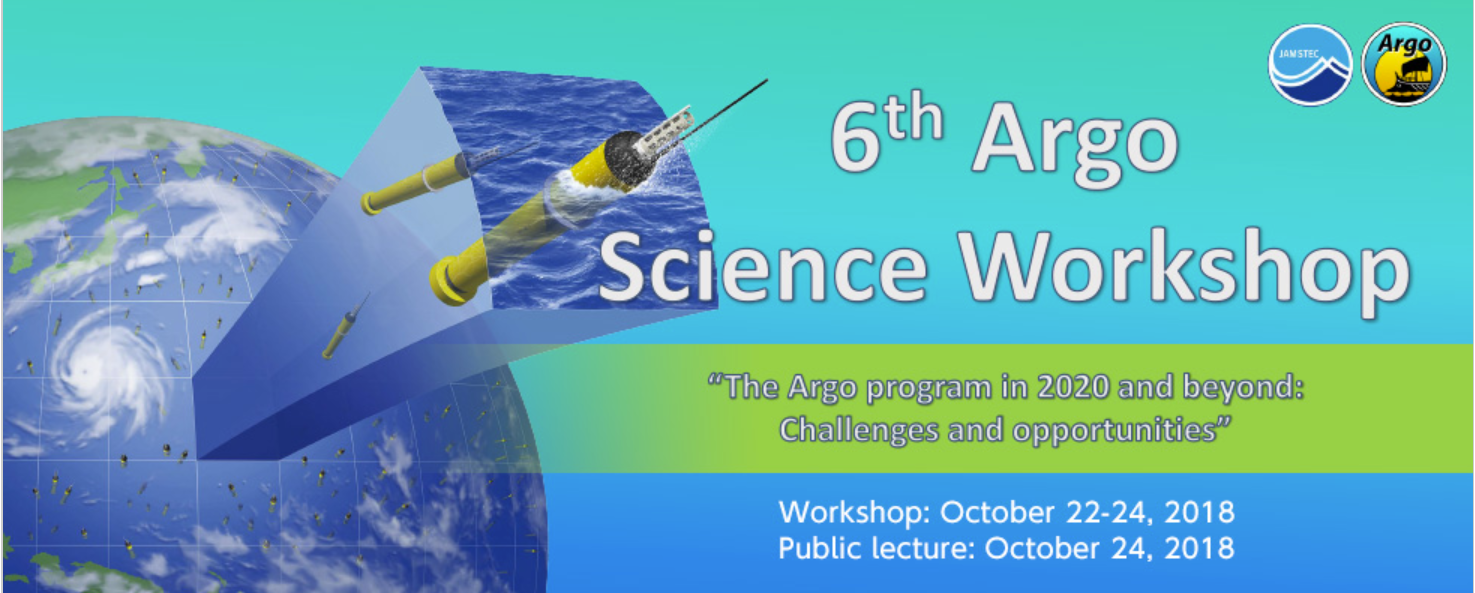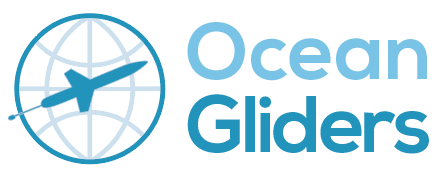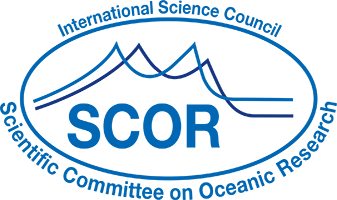News
+ more news
New Oxygen Theme site live at: www.ioccp.org/oxygen
Tuesday, 31 July 2018
Earlier this year the Oxygen Theme was added to IOCCP's portfolio and Véronique Garçon was appointed as the SSG member responsible for related IOCCP activities. Now we are happy to invite you to check out the new Oxygen Theme site at: www.ioccp.org/oxygen. You will find information about ongoing IOCCP activities related to oxygen observations, projects and programs involved, as well as links to relevant databases, information products, references and other resources potentially useful to the marine biogeochemistry observing community. If you have any questions or suggestions for how the website could be improved, please don't hesitate to contact the This email address is being protected from spambots. You need JavaScript enabled to view it..

AGU Fall Meeting abstract submission deadline: 1 August
Monday, 23 July 2018
As the deadline for submitting abstracts and Town Halls for the American Geophysical Union (AGU) Fall Meeting is drawing near (1 August 2018, 11:59 P.M. EDT), please take a look at a subjective selection of some of the sessions which might be of interest to the marine carbon and biogeochemistry community. The meeting will take place in Washington, D.C., USA, on 10-14 December 2018. Please let us know if there are any other sessions you think should be on this list.

6th Argo Science Workshop, 22-24 October 2018, Tokyo, Japan
Friday, 13 July 2018
We would like to let you know that the 6th Argo Science Workshop (ASW-6) on "The Argo program in 2020 and beyond: Challenges and opportunities" will be held at Hitotsubashi Hall in Tokyo, Japan, on 22-24 October 2018. The workshop will be a mix of invited and submitted plenary talks and posters, including a dedicated session on Biogeochemical Argo. Contribution towards any of the workshop objectives (see below) and presentations of underpinning science and technology are encouraged.
Abstract submission will close on 10 August 2018. Because of the capacity of the venue, the number of registrations will be limited to 200. Authors are advised not to delay registration.

Version 6 of the Surface Ocean CO2 Atlas (SOCAT) now available
Thursday, 21 June 2018
On behalf of more than 100 contributing scientists worldwide, we proudly announce the release of Version 6 of the Surface Ocean CO2 Atlas (SOCAT). SOCAT (www.socat.info) is a synthesis activity by international marine carbon scientists with annual public releases. SOCAT version 6 has 23.4 million quality-controlled in situ surface ocean fCO2 (fugacity of carbon dioxide) measurements from 1957 to 2017 for the global oceans and coastal seas, as well as additional calibrated sensor fCO2 measurements. The ![]() poster handout has further details on version 6 key features, findings and other information.
poster handout has further details on version 6 key features, findings and other information.

Submit an abstract to a Novel Data-Analysis Techniques session (OS034) at 2018 AGU Fall Meeting, 10 – 14 December, Washington, DC, USA. Abstract submission deadline: 1 August 2018, 11:59 P.M. EDT
Wednesday, 20 June 2018
Over the past decade marine sciences experience a surge in the volume of data from in-situ collection, satellite missions and earth system model simulations. Scientists are increasingly faced with the emerging challenge of analysing and synthesising collected data, which are often too big and complex to detect temporal (diurnal to decadal) and spatial (local to global) variability or secular trends using traditional statistical approaches. Greater than ever proportion of the community has turned to advanced statistical and machine learning methods to integrate, analyse and synthetize these multi-platform data. The utility of these methods has been demonstrated in many areas of Earth Science, and is now also becoming apparent in ocean physics, air-sea interactions, ocean biogeochemical cycles, and marine ecology. This has resulted in the proliferation of data products that straddle oceanography and data science.
We invite scientists in this exciting intersection to submit abstracts for the session titled: "Novel data-analysis techniques for big data applications in marine science" (OS034). The session is open for submissions in the field of ocean physics, chemistry and/or biology but also those connecting the spheres, such as air-sea and air-land interactions.

International conference on glider data management, 18-20 September 2018, Aquario du Genova, Italy
Friday, 08 June 2018
We would like to let you know that an international conference on glider data management "Connecting glider data flows in Europe and beyond" will be held on 18-20 September 2018, at the Aquario du Genova, in Genoa, Italy. This meeting intends to open a 2.5 days forum dedicated to glider data management issues. Initiated by the EuroGOOS Glider Task team and aligned with the objectives of the GOOS-endorsed program OceanGliders, it will focus on technical and strategic issues related to the Everyone's Gliding Observatories (EGO) format and real time/delayed mode, and physical as well as biogeochemical gliders data management. Particular attention will be paid on discussions and provision of guidance on data management to the new glider teams willing to contribute to the global ocean observing system. A workshop session dedicated to the installation of the data management capacity in your institution is planned. The organization of this session is at the moment an option and will depend on the number of interested persons.
To attend the meeting, please fill in the registration form. Event registration must be completed at least one month prior to the event.

From COP21 towards the United Nations Decade of Ocean Science for Sustainable Development (2021-2030)
Wednesday, 06 June 2018
In view of the launching of the United Nations Decade of Ocean Science for Sustainable Development (2021–2030), the Ocean and Climate Platform and IOC-UNESCO are organizing a High Level Scientific Conference on 10 and 11 September 2018, at UNESCO Headquarters in Paris. The conference aims at synthesizing recent scientific progress on ocean and climate interplays; evaluating the latest ocean-climate trends within the context of increased ocean action; and reflecting on ways to move "from science to action". Organized around four sessions, the event will bring together scientists from multiple disciplines, civil society, businesses, decision-makers and UN entities, to share their expertise on ocean and climate related issues. To register please visit: https://en.unesco.org/ocean-climate-conference

Ocean acidification becomes one of WMO’s ‘Global Climate Indicators’
Monday, 21 May 2018
We would like to inform you that Ocean Acidification has been considered as one of World Meteorological Organization's Global Climate Indicators - a set of seven parameters that describe the changing climate without reducing climate change to only temperature. They comprise key information for the most relevant domains of climate change: temperature and energy, atmospheric composition, ocean and water as well as the cryosphere. These Global Climate Indicators have been identified by scientists and communication specialists in a discursive process led by GCOS during workshops and scientific panel meetings and have been finally endorsed by WMO. They form the basis of the annual WMO Statement of the State of the Global Climate, which is submitted to the Conference of Parties of the United Nations Framework Convention on Climate Change (UNFCCC).

First order draft expert review of the IPCC Special Report on the Ocean and Cryosphere in a Changing Climate
Thursday, 17 May 2018
This is to inform you that the Expert Review of the First Order Draft of the Intergovernmental Panel on Climate Change (IPCC) Special Report on the Ocean and Cryosphere in a Changing Climate (SROCC) will take place from 4 May until 29 June 2018. Expert Reviewers can register at www.ipcc.ch/apps/comments/srocc/fod/register.php up to a week before the end of the review period, until 22 June 2018, 23:59 (CST). The Expert Review of the First Order Draft is a key element of the IPCC assessment process. Experts from around the world will offer comments and suggestions to the author teams. The report authors address every comment received when they prepare the next draft, and the review process aims to include the broadest possible scientific perspective.

The 3rd Integrated Carbon Observation System (ICOS) Science Conference 2018 - abstract submission closes on May 18
Tuesday, 15 May 2018
We would like to let you know that abstract submission will soon close for the 3rd Integrated Carbon Observation System (ICOS) Science Conference to be held on 11-13 September 2018 in Prague, Czech Republic. The Conference welcomes abstracts within 14 themes in biogases and cycles research (see below for details). Contributions from commercial companies are welcome, but with the restriction that the presenting and/or first author of an oral presentation or posters cannot be affiliated to a commercial company.
Extended deadline: 18 May 2018 at 12:00 (UTC+2)
The IOCCP promotes the development of a global network of ocean carbon observations for research through technical coordination and communication services, international agreements on standards and methods, and advocacy and links to the global observing systems. The IOCCP is co-sponsored by the Scientific Committee on Oceanic Research and the Intergovernmental Oceanographic Commission of UNESCO. Read more…
Calendar
|
|
IOCCP meetings, IOCCP-related meetings as well as events related to a wider scope in marine biogeochemistry. |





 Please wait...
Please wait...